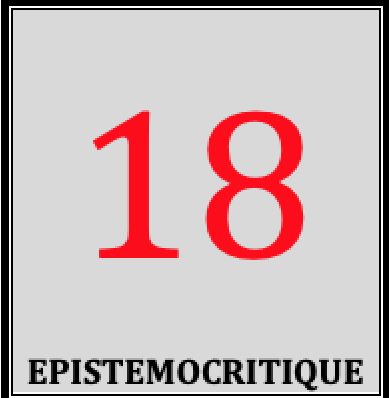Pourquoi se parler, intérieurement ? De quoi nous parlons-nous ? Comment se structurent nos espaces mentaux ? L’abondance des études sur le langage intérieur ces dernières décennies est spectaculaire. Néanmoins, des lacunes subsistent et des pans entiers restent à explorer, comme la question des espaces intérieurs. La représentation des espaces intérieurs n’a généralement été abordée que sous un angle métaphorique, ou indirect. Les liens entre espaces intérieurs et langage intérieur n’ont guère été explorés au sein d’une discipline et encore moins à l’interface entre plusieurs disciplines. L’objectif de ce numéro d’Épistémocritique est de poser des premiers jalons dans cette direction, à la convergence entre linguistique, neurosciences, études littéraires, théâtrales et cinématographiques.
Why do we talk to ourselves? What do we talk about, when we do? How does inner speech represents inner space? And how is such inner space structured? During the last decades, studies of inner speech have multiplied. However, many questions remain unexplored within this emerging field, such as that of the relation between inner space and inner speech, which has essentially been treated as a metaphor, or indirectly, by the concerned disciplines, or at their interdisciplinary interfaces. This issue of Epistemocritique endeavors to remediate this lack through contributions at the crossroads of linguistics, cognitive neuroscience, and literary, theater and film studies.
Epistémocritique, volume 18
Langage intérieur / Espaces intérieurs. Inner Speech / Inner Space
– Introduction « Voix et représentations intérieures de l’espace »
– Introduction « Inner voices and represantation of inner space »
– Smadja Stéphanie, Paulin Catherine, « Espaces et parole intérieure en prison »
– Lœvenbruck Hélène, « What the neurocognitive study of inner language reveals about our inner space »
Article hors série :
– Thomas M. Byron, « Limitations in Experimental Method in Balzac’s La Peau de chagrin »
ISSN 1913-536X ÉPISTÉMOCRITIQUE (SubStance Inc.) VOL. XVIII

